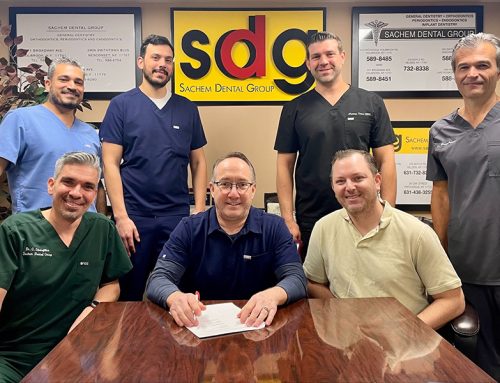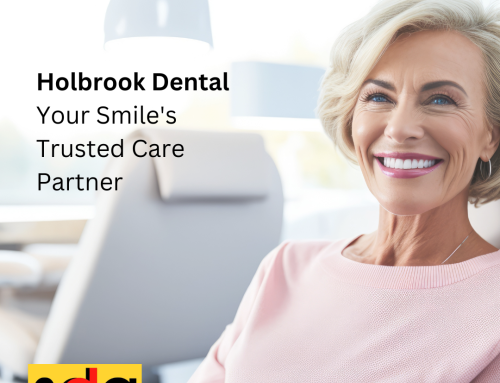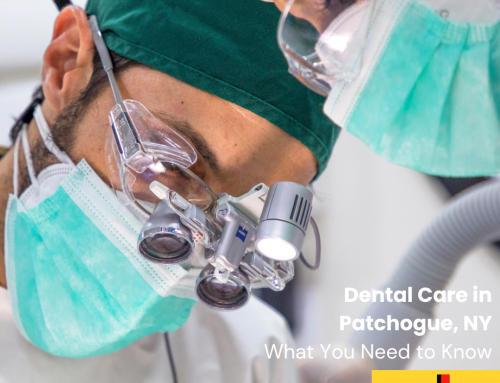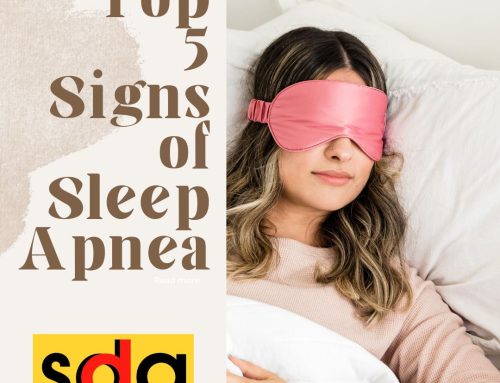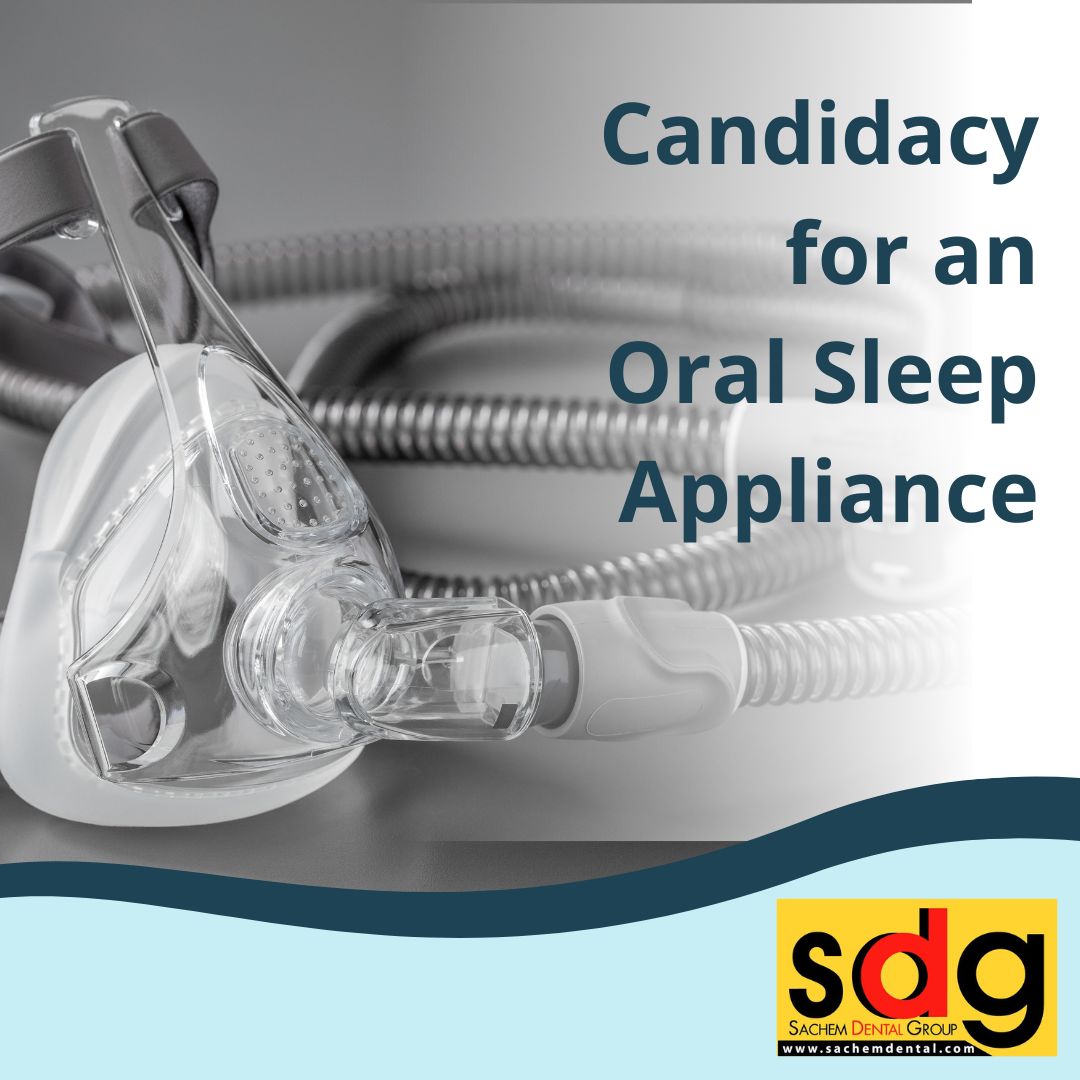
Sachem Dental Group has provided high-quality dental care to the Long Island (Suffolk County) community for over 35 years. One of the services we offer is the use of oral sleep appliances to treat obstructive sleep apnea (OSA). In this blog, we will discuss what OSA is, how oral sleep appliances work, who qualifies for an oral sleep appliance, and how to request an oral sleep apnea screening.
What is Obstructive Sleep Apnea?
Obstructive sleep apnea is a sleep disorder that occurs when a person’s airway is partially or completely blocked during sleep. This blockage usually happens because of a collapse of the soft tissues in the back of your throat (such as your tongue, tonsils, and soft palate.) This can cause the person to stop breathing for brief periods, which can result in snoring, interrupted sleep, and fatigue during the day. OSA can also lead to more serious health problems, such as high blood pressure, heart disease, and stroke.
How an Oral Sleep Appliance Works
Oral sleep appliances are a type of treatment for OSA that work by repositioning the jaw and tongue to keep the airway open during sleep. As that happens, it prevents the soft tissues from sealing against one another and blocking off your oxygen flow. These devices are custom-made for each patient and are worn like a mouthguard or retainer while sleeping. Oral sleep appliances are often more comfortable than traditional continuous positive airway pressure (CPAP) machines, which are the most common treatment for OSA.
Oral Appliance for People Who are CPAP Intolerant
While CPAP machines are effective in treating OSA, some people find them uncomfortable or difficult to use. These individuals may be considered CPAP intolerant and may benefit from an oral sleep appliance instead. An oral sleep appliance can be a great alternative for those who have difficulty using a cumbersome or uncomfortable CPAP machine.
Sleep Appliance Alternative to CPAP Therapy
Even if a person is not CPAP intolerant, an oral sleep appliance may still be an alternative to CPAP therapy. This is especially true for people with mild to moderate OSA. Oral sleep appliances can be effective in reducing OSA symptoms and improving overall sleep quality. They can also be more convenient and easier to use than a CPAP machine, which requires a power source and tubing.
Request an Oral Sleep Apnea Screening
If you suspect that you or a loved one may have OSA, it is important to schedule an oral sleep apnea screening. Our team of experienced dentists at Sachem Dental Group can evaluate your symptoms and recommend the best course of treatment for your specific needs. If you are a candidate for an oral sleep appliance, we can custom-fit one for you and provide ongoing care to ensure it continues to work effectively.
At Sachem Dental Group, we are committed to providing our patients with the highest quality care. Contact us today to request an oral sleep apnea screening and learn more about our oral sleep appliance services. We look forward to helping you achieve better sleep and overall health.

